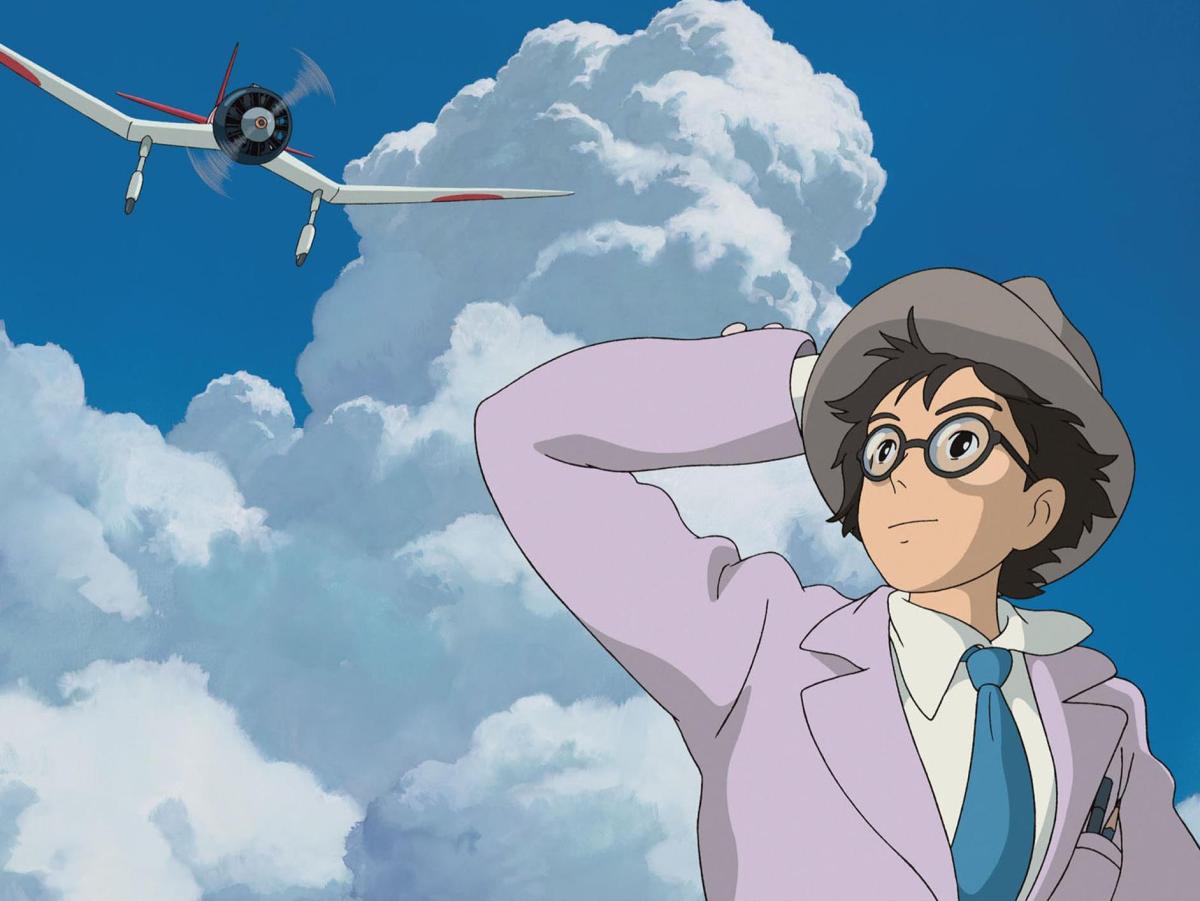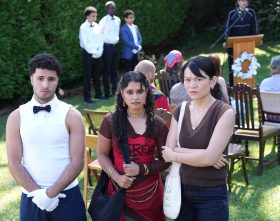‘Airplanes are beautiful dreams,’ believes Jirô (Hideaki Anno, Welcome to the Quiet Room), his head filled with the majestic machines of flight from an early age. His life’s desire to make his imaginings a reality, to design the greatest plane his nation has ever seen, monopolises his every waking and sleeping moment. Fantasised, prophetic encouragement of his idol, Italian air mogul and pioneer, Caproni, (Mansai Nomura, The Floating Castle) only further motivates and inspires.
As Jirô grows into a man, his career shoots along a path chosen due to his poor eyesight, with aviation engineering his profession as well as his passion. He is driven to succeed as he tests his talents in creating sleeker and swifter aircraft, his nous carefully nurtured by his employer, and further motivated by a Navy-sponsored competition. Yet soon something else infiltrates his thoughts, sparked by a romance with the ailing Naoko (Miori Takimoto, TV’s My Wife is a Ninja). As the Second World War sweeps towards Japan, the impact of his work looms like a dark shadow. What he spends his life trying to make, others use to destroy in seconds; self-determination and fate prove ever at odds.
Of course, the grand, graceful The Wind Rises (Kaze tachinu) remains subtle in the attention afforded the outcome of Jirô’s efforts, the film primarily paying tribute to the consequences of invention and the fleeting nature of noble intentions. Interweaving the personal with the professional allows a thoughtful contrast, as Jirô seeks perfection – but at what cost? The impact of tragedy is inescapable; from the Great Kanto Earthquake of 1923 that represents his first meeting with a young Naoko, to the ongoing plight of her worsening health years later, every episodic slice of their lives strives for an idyll that is constantly tempered by reality. An astute portrait of Japan at the time, and of international affairs, circles around Jirô’s quest, providing a further point of juxtaposition.
The Wind Rises eschews the magic and wonder for which writer/director Hayao Miyazaki has become best known, his film far removed from applauded, energetic efforts Princess Monoke, Spirited Away, Howl’s Moving Castle and Ponyo. The change of mood and focus suits his subject, but also befits the film’s status as his last. Lingering and filled with longing, that this feels like a farewell is easy to intimate and to come to terms with, given his widely stated intention to now retire.
Miyazaki’s own passion is also evident amongst this tender goodbye, the acclaimed animator adapting his manga of the same name – itself loosely based on Tatsuo Hori’s short novel, The Wind Has Risen, and inspired by the legacy of real-life figure Jirô Horikoshi – with an air of melancholy and wistfulness. He appears to be looking inward, at the act of creation, as much as he contemplates his based-on-actuality character. His mourning for the former, and homage to the latter, prove a fitting complement.
Softly drawn yet sharply evocative animation ties the moving tale and meditative tone together, The Wind Rises’s imagery as soaring and immersive as its narrative, though the ever-elegant effort sometimes trickles rather than glides along. Miyazaki was reportedly inspired by a quote from Horikoshi himself: ‘All I wanted to do was to make something beautiful’. Those words may echo in a story both beguiling and bittersweet, but it is in a visual display both picturesque and poetic that that their evidence most firmly forms.
Rating: 4 stars out of 5The Wind Rises (Kaze tachinu)
Director: Hayao Miyazaki
Japan, 2013, 126 mins
Release date: 27 February
Distributor: Madman
Rated: PG
Actors:
Director:
Format:
Country:
Release:





